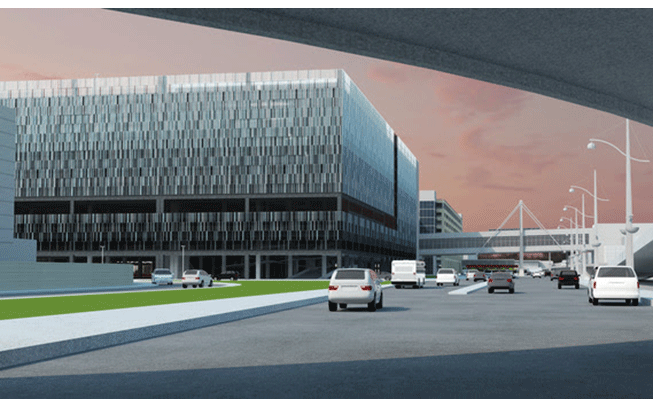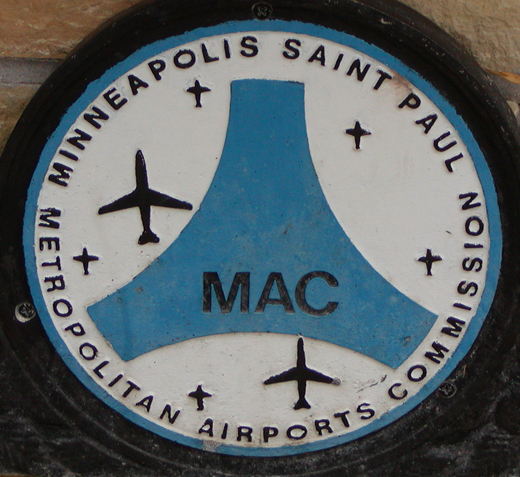Metropolitan Airports Commission Mac

The Metropolitan Airports Commission (MAC) owns and operates a permanent system of 39 sound measurement sites around Minneapolis-Saint Paul International Airport (MSP). Aircraft and community sounds are collected, with a goal to capture as much aircraft sound as possible from airplanes flying to and from MSP. The levels from these measurement sites show the Minneapolis-St. Paul area had a quiet spring and summer.
The chart below shows a weekly system-average sound level in a metric called the Equivalent Level (LAeq ). The LAeq is the continuous sound level equivalent of the average sound energy for a period of time. The gaming homepage 2. The LAeq takes into account all sounds regardless of the source, including sounds from aircraft, environment (i.e. Easy mp3 converter pro 2 10 07. wind, thunder, wildlife), and community (i.e. road traffic, sirens, construction activity, trains). Badia exportools professional 6 0 0 crack.
2.2 Commission or MAC. The Metropolitan Airports Commission, a public corporation organized and operating pursuant to Chapter 500, Laws of Minnesota 1943 and amendments thereto. The MAC Human Resources & Labor Relations Department or its successor in function. Thank you for your recent inquiry regarding aircraft activity at Minneapolis-St. Paul International Airport (MSP). We appreciate your interest and want you to know we are listening. The Metropolitan Airports Commission's (MAC) Noise Program Office has helped residents understand the complexities of aircraft noise for more than 30 years. Metropolitan Airports Commission (MAC) in 1943 to plan and operate airports in the Twin Cities region. MAC’s principal responsibility is management of Minneapolis-St. Paul International Airport, which has the seventh largest number of “operations” (arrivals and departures) among U.S. MAC also operates six.
- Metropolitan Airports Commission (MAC) MAC TNC Driver Permit Application. Please contact MAC Landside Operations at tnc@mspmac.org.
- MAC stands for Metropolitan Airports Commission (also Media Access Control and 1587 more).
In May, we provided information on the sound data collected and evaluated by MAC staff and discussed how changes in aircraft and community activity resulted in about a 4 decibel (dB) reduction in LAeq in April 2020 compared to a 4-year average (article available here). Higher LAeq values during week 16 and week 27 are due to severe weather week tornado siren drills and Fourth of July fireworks (also evident in the 4-year average), respectively.
The chart above compares 2020 sound data through September to a 4-year average (2016 through 2019). The comparison reveals that during the first months of 2020, LAeq levels were similar to average levels. From weeks 13 through 40 (April through September) there was a reduction of about 3 dB. While 3 dB may not sound like much, an increase or decrease of 3 dB represents a doubling or halving of sound energy due to the logarithmic nature of the dB scale.

https://torrentmighty.mystrikingly.com/blog/how-to-download-itunes-store. This decrease in sound energy is most likely attributed to a decrease in aircraft activity and community sources such as vehicle traffic and other community activity near sound measurement sites. Telecharger adobe premiere pro cc 2015 mac. These quieter conditions are not typical and are expected to return to previous levels as aircraft and community activity returns to normal.

More information about sound monitoring is available at: https://macnoise.com/faq/what-sound-monitoring.
The Metropolitan Airports Commission (MAC) was created by state law in 1943. A public corporation, the commission was designed to provide for coordinated aviation services throughout the Twin Cities metropolitan area.
Today, the MAC operates the third largest aviation system in the nation, consisting of Minneapolis-St. Paul International and six reliever airports, including Flying Cloud Airport. A board of commissioners appointed by Minnesota's governor and the mayors of Minneapolis and St. Paul sets and interprets the commission's policies. Those policies are implemented by the commission's executive director and staff.
Metropolitan Airports Commission Map
Noise Complaints
Metropolitan Airport Commission Msp
The MAC maintains a 24-hour noise complaint and information hotline. Our neighbors can file aircraft noise complaints by clicking the link below or by calling the hotline at 612-726-9411. If there are questions about specific operations at MSP or any of the MAC-owned airports, please contact the Noise Program Office staff through the hotline. Noise Program Office staff responds to callback requests during normal business hours.

Metropolitan Airports Commission Mac
UNDER MAINTENANCE